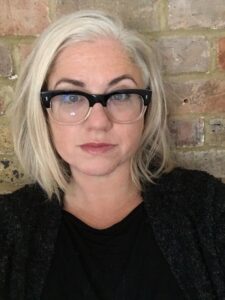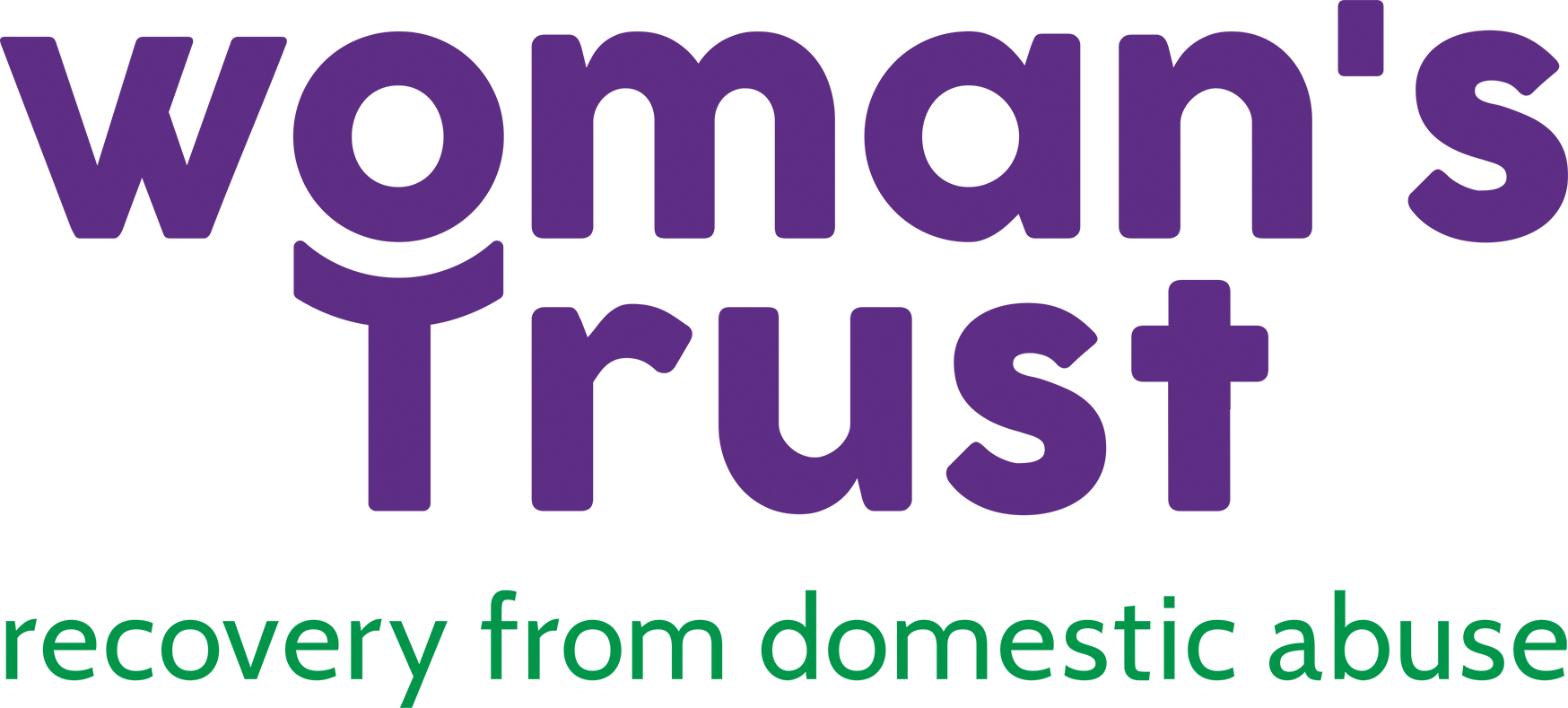
Board Trustee and Chair of Woman’s Trust’s Ethics, Practice and Safeguarding Committee, Laura McCarthy, is a qualified and practising counsellor and psychotherapist.
As someone with direct experience of domestic abuse, here Laura shares her story about why she supports Woman’s Trust, discussing the intersectional aspects of society that can contribute to it – and the role of counselling in supporting women to rebuild their lives after abusive relationships.
“Becoming a Trustee at Woman’s Trust was a deeply personal decision shaped by my own experiences of domestic abuse, the harmful patterns I witnessed in my family, and my commitment to creating real change for other survivors. The impact of domestic abuse is far-reaching, and organisations like Woman’s Trust are leading the way in providing the specialised support women need to heal and rebuild their lives. My work with Woman’s Trust is driven by the belief that every survivor deserves access to the kind of care that can truly transform their future.
In my family, the legacy of domestic abuse spans at least three generations. As the daughter and granddaughter of Irish immigrants, I saw how the weight of English colonialism in Ireland and systemic oppression shaped these damaging cycles. When my family arrived in post-war London, they faced blatant hostility, encountering signs that read, “No Blacks, No Irish, No Dogs.” These systemic injustices deprived the men in my family of stable housing, decent work, and dignity. Their frustration and anger often turned inward or were directed toward those closest to them, trapping the women in cycles of abuse.
I watched as fathers modelled harmful behaviours for their sons and as the women in my family endured their pain in silence, constrained by rigid gender norms, divorce restrictions, and victim-blaming attitudes embedded in religious and societal structures. These systems stifled their voices and limited their choices. These experiences taught me how colonialism and patriarchy intertwine to create power dynamics that perpetuate abuse across generations.
Determined to end these cycles of harm, I resolved to address domestic violence not just as a personal struggle but as a systemic issue.
I know how life-changing the right support can be because I’ve lived it. As a survivor of domestic abuse, I understand the isolation and overwhelm that come with trying to rebuild your life. Counselling was my lifeline—it gave me the space to process my trauma, rediscover my identity, and take those first steps toward healing. It also gave me the courage to leave a male-dominated and often toxic music and entertainment industry, where I had worked for decades. I retrained as a psychotherapist, specialising in supporting survivors of domestic, sexual, and ritual abuse. Becoming a Trustee at Woman’s Trust was a natural progression—an opportunity to blend my lived experience with professional expertise to help others access the life-changing support they need.
Every year, an estimated 1.6 million women in the UK find themselves trapped by domestic violence or abuse. At Woman’s Trust, we understand that the impact of such abuse extends far beyond physical injuries—it inflicts deep emotional wounds that shatter self-esteem, instil fear, and sever ties with essential support networks. Recovery from such trauma demands safe, nurturing, and empowering environments. Yet, access to counsellors specifically trained to support survivors remains exceedingly rare, even as the National Police Chiefs’ Council declared violence against women an epidemic in July 2024.
This is where Woman’s Trust makes a difference. We provide specialist, trauma-informed one-on-one and group counselling services, tailored to meet the unique needs of women who have endured domestic abuse. Our approach is designed to address the distinct challenges survivors face, helping them rebuild their sense of safety, rediscover their self-worth, and regain control of their lives. For countless women, Woman’s Trust is more than just a counselling service—it is a vital lifeline, offering a path toward healing.
What sets Woman’s Trust apart is our trauma-responsive, feminist approach. We recognise that domestic abuse is rarely an isolated incident; it often stems from entrenched power imbalances within relationships and society. Our counselling services validate each survivor’s lived experience, helping them rebuild trust and confidence as they reclaim their lives. Unlike conventional therapy, our approach is intricately tailored to meet survivors where they are in their journey, empowering them to progress at their own pace.
We also recognise that a survivor’s experience of abuse is deeply shaped by their cultural, racial, and socio-economic background. This drives us to incorporate cultural competence into our practice. Our counsellors provide inclusive and sensitive support, honouring each woman’s unique story while addressing the systemic structures that perpetuate abuse.
The impact of our work is life-changing. Women who engage with our counselling services are more likely to recover their mental health, restore their confidence, and build healthier relationships. At Woman’s Trust, we do more than provide counselling. We actively challenge the structures that enable abuse while guiding women on their healing journeys. We provide hope, empowerment, and a clear path to recovery. Every woman deserves the fundamental right to live free from violence. It is both an honour and a source of profound joy to contribute to this crucial work, helping to shape a future where survivors can truly thrive.”
#16days
This article is part of the UN 2024 global #16DaysOfActivism movement.
The annual campaign is focused on mobilising people, organisations and communities to address the global epidemic of violence against women and girls (vawg).
The beginning is marked in the UK by White Ribbon Day – when men and boys commit to being allies for women and girls and to working to end vawg.
This year, Woman’s Trust is focusing on telling the stories of 16 women throughout the campaign, who all have a connection to vawg – either through personal experience or through their work to address the systemic issues contributing to and exacerbating the impact of vawg on survivors.
As a mental health organisation, we will also be shining a light on the hidden trauma caused by domestic abuse, and the devastating effect it can have on women – as well as our pioneering work in this area.
